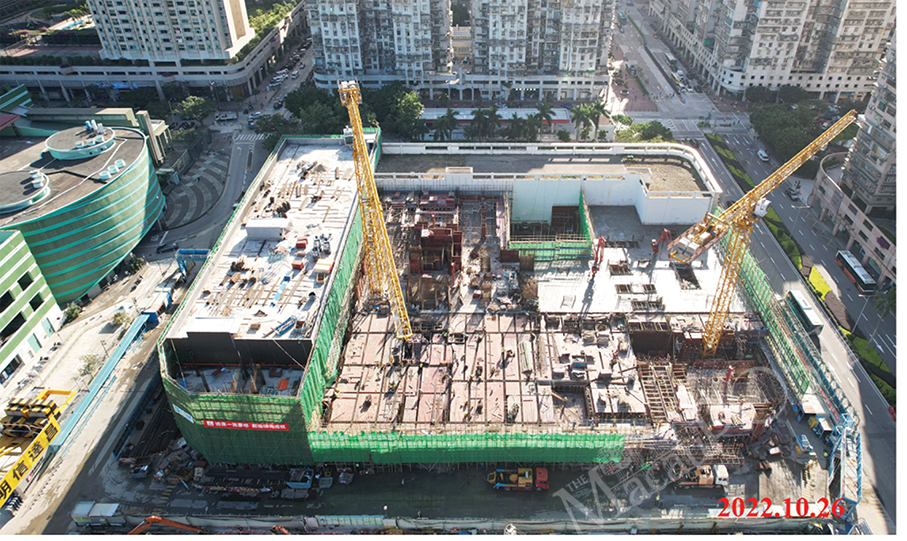President Xi Jinping’s 11-day working visit to Latin America, which ended on Saturday, reaffirmed China’s commitment to advancing with its goal of helping establish a global community of shared future.
As Foreign Minister Wang Yi, one of the world’s most well-versed diplomats, has pointed out, Xi’s tour was “a journey of friendship across mountains and seas, a journey of solidarity to jointly promote development, and a journey of cooperation to expand partnership,” during which the Chinese president attended 40 bilateral and multilateral events and reached more than 60 cooperation accords.
The trip, which began in Lima on November 13, comprised two state visits – to Peru and Brazil – and Xi’s participation in the 31st APEC Economic Leaders’ Meeting in the Peruvian capital and the 19th G20 Summit in Rio de Janeiro, Brazil’s former capital, which continues to be the giant nation’s premier cultural and tourism hub and second most important city after São Paulo.
During his state visit to Peru, which has a population of 33 million, including some 1.5 million ethnic Chinese, Xi and Peruvian President Dina Boluarte participated on Thursday by video link in the opening of the 15-berth Chancay deep-water port, about 80 kilometres north of Lima on the Pacific Ocean, a US$1.3 billion investment by China’s Cosco Shipping Ports, and inked an agreement to broaden an existing free trade agreement (FTA). According to Cosco, it is South America’s first smart and green port.
Xi described the harbour as the start of the 21st-century maritime Silk Road and part of China’s Belt and Road Initiative (BRI), Beijing’s modern revival of the ancient Silk Road trading route.
A Cosco Shipping Chancay Peru spokesperson said last week that plans were already on the drawing board to connect the megaport by a railway to neighbouring Brazil, which would further boost its economic importance for trade between China and South America as a whole, which would, no doubt, not only benefit Peru and Brazil.
Peru has a very diverse economy which includes mining and minerals, copper in particular, coffee (I am an aficionado of his high-quality Arabica) and asparagus (another culinary favourite of mine), fishmeal and tourism (the UNESCO World Heritage-listed Machu Picchu citadel springs to mind).
The first Chinese arrived in Peru in the mid-19th century. The Andean country’s sizeable and, generally speaking, thriving Chinese community includes the descendants of the victims of Hong Kong and Macau’s nefarious Kuli trade, which involved human trafficking, exploitation and debt bondage. One of my first media colleagues and other friends in Macau in the 1980s were returned overseas Chinese from Peru and their local-born offspring who told me about their families’ hardship and hard work to achieve better living conditions. That the Chinese diaspora is an industrious one is globally known.
In his address at the APEC summit in Lima, Xi made three proposals – “First, we need to build an open and interconnected paradigm for Asia-Pacific cooperation; Second, we need to make green innovation a catalyst for the Asia-Pacific; Third, we need to uphold a universally beneficial and inclusive vision for Asia-Pacific development.”
He also quoted an ancient Chinese adage according to which “a man of virtue, while establishing himself and pursuing success, also works to help others establish themselves and succeed.” Consequently, Xi said, “China welcomes all parties to continue riding the ‘express train’ of its development and grow together with the Chinese economy so that we can all contribute to the modernisation of all countries featuring peaceful development, mutually beneficial cooperation and common prosperity”.
This, of course, should be the transnational development aim of not just the Global South but also the Global North – in order for both – together – to be able to set up a global community of a shared future. Our planet is beset with too many challenges – poverty, the environment, health, education – to continue to be further victimised by ideologically driven considerations to the detriment of practical solutions, irrespective of the community of sovereign states’ different social, political, cultural, religious and, last but not least, value systems.
On the sidelines of the gathering of the 21 APEC member economies’ leaders, Xi and US President Joe Biden held, according to Xinhua News Agency, a “candid, profound and constructive” meeting on Saturday
In their meeting, which took place about two months before Biden’s relocation from the White House, Xi listed seven points for both sides to draw inspirations from the China-US relations’ experiences in the past four years, and, most importantly, the Fourth Point which clearly defines the “four red lines for China”.
The seven crucial points for a workable China-US relationship are, according to Xi: “First, it is important to have a correct strategic perception; Second, it is important to match words with actions; Third, is it important to treat each other as equals; Fourth, it is important not to challenge red lines and paramount principles. Contradictions and differences between two major countries like China and the Unites States are unavoidable… The Taiwan question, democracy and human rights, China’s path and system, and China’s development right are four red lines for China. They must not to be challenged. These are the most important guardrails and safety nets for China-US relations.”
Xi’s Fourth Point is, in my view, a paragon of the clear-cut expression of a country’s realistic and pragmatic approach towards its foreign relations, both on a bilateral and international level. Other countries and organisations should take this as an example of unambiguously stating their red lines, instead of using wishy-washy talk when referring to them on the global stage. I am convinced that the current Ukraine-Russia and Israel-Hamas-Hezbollah conflicts could have been avoided if red lines would have been respected, such as Russia and Israel’s legitimate security interests. And now we have a bloody mess in Eastern Europe and the Middle East…
Xi’s three others points for China and the US to draw inspections from are: “Fifth, it is important to conduct more dialogue and cooperation; Sixth, it is important to respond to the expectations of the people; Seventh, it is important to set forward to shoulder the responsibilities of major countries.”
Xi underlined one of international relations’ most basic facts, i.e., that the China-US relationship is critical to humanity’s future, and he urged the US to support China peaceful reunification and the Chinese people’s right to development.” One can only hope that future US president Donald Trump and his retinue have got the message… and won’t repeat the misjudgements that bedevilled China-US relations between 2017-2021, apart from the fact that Biden failed to rectify them during his outgoing four-year term.
In Rio de Janeiro, where he attended the 19th G20 Leaders’s Summit, Xi underlined China’s eight actions for global development – “First, to pursue high-quality Belt and Road (B&R) cooperation; Second, to implement the [China-proposed] Global Development Initiative [which involves US$20 billion of development funds]; Third, to support the development of Africa; Fourth, to support international cooperation and poverty reduction and food security [personally, this is one of my dearest concerns regarding humanity’s future, alongside environmental protection]; Fifth, China, alongside Brazil, South Africa and the African Union, is proposing an Initiative on International Cooperation in Open Science to help the Global South gain better access to global advances in science, technology and innovation; Sixth, to support the G20 in carrying out practical cooperation for the benefit of the Global South and using such outcomes as the Roadmap to Increase Investment in Clean Energy in Developing Countries and the High-Level Principles on Bioeconomy to good effect; Seventh, to implement the G20 Anti-Corruption Action Plan; Eights; China is pursuing high-standard opening up, and unilaterally opening its doors wider to the least developed countries (LDCs).”
Editing the many news dispatches for publication in our newspaper for well over a week about Xi’s LatAm tip, I am more convinced than ever that China’s foreign ministry is one of the world’s best qualified and most well prepared.
Apart from France’s centrist President Emmanuel Macron, Britain’s central-left Prime Minister Keir Starmer and Argentina’s ultra-libertarian President Javier Milei, among others, Xi also held “frank, in-depth and fruitful” talks with the driver of the European Union’s economic locomotive, centre-left German Chancellor Olaf Scholz, whom he urged, in the wake of Brussels’ unwise increase in tariffs on China-made, environmentally friendly electric vehicles recently, to resolve differences between China and the EU via dialogue and consultation.
Xi underlined that China regards Germany, the number three among the world’s around 200 economies, as an important partner in advancing Chinese modernisation. It remains to be seen whether Scholz will still work in the chancellery in Berlin after Germany’s snap election on February 23. China is Germany’s main trading partner, ahead of the US, and the EU is China’s number-two trading partner in the EU, following the US. The China-Germany and China-EU economic ties are much too important to be left to political dilettanti and anti-China ideologues in Brussels or Berlin. The victims would be, among others, Europe’s consumers, those with thin wallets in particular.
Following the G20 submit in Rio, Xi visited Brasília for a state visit to Latin America’s largest country by population (214 million) and size (8.5 million km2) where he met China’s old friend, veteran labour-rights activist and poverty reduction champion Luis Inácio Lula da Silva for talks.
Xi and Lula are the world’s poverty-alleviation co-champions.
Both presidents decided in Brasília to establish synergies between China’s BRI and Brazil’s development strategies. Xi also said that China was ready to work with Brazil as “golden partners” for each other’s success.
Lula said that “in a world plagued by armed conflicts and political strife, China and Brazil put peace, diplomacy and dialogue first,” and he also stressed Brazil’s joint effort with China to end the war in Ukraine, which includes a roadmap for peace.
Xi said that China-Brazil relations “are at their best in history”, considering the partnership agreement that he and his host entered into during the state visit.
The first Chinese immigrants, both workers and traders, settled in Brazil in the late 19th century. The country’s Chinese diaspora is estimated to have grown to 300,000. São Paulo has the country’s largest community whose restaurants play an important role in the multicultural megacity’s culinary landscape.
Brazil is not only a founding member of the now nine-member BRICS intergovernmental organisation initiated by China but also one of the original members of the Macau-based Forum for Economic and Trade Cooperation Between China and Portuguese-Speaking Countries (Forum Macao), one more reason for all of us here to pay close attention to the development of relations between China and Brazil.
Summarising Xi’s LatAm tour, Foreign Minister Wang said that the visit again “sent a clear message of firmly upholding multilateralism at the crossroads of human history” … and “demonstrated China’s image as a responsible major country with fairness, justice, courage, openness, and inclusiveness”.
I am quite sure that most of the leaders of the APEC economies and G20 member states agree with Wang’s assessment. I hope that the Global North’s leaders will take heed…
As it may be, Xi’s two-nation, two-summit tour reaffirmed China’s commitment to seeking a global community of a shared future, the key aspects of which are cooperation, sustainability, peace and security, social justice, and cultural exchange.
– Harald Brüning








